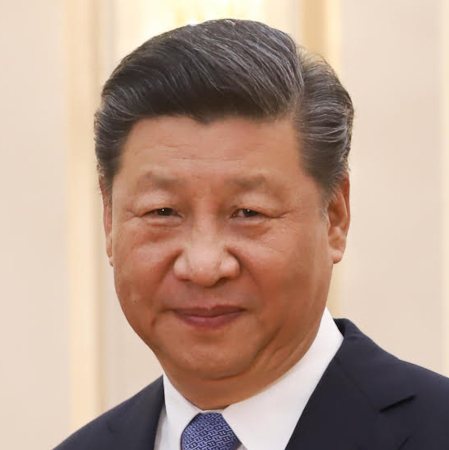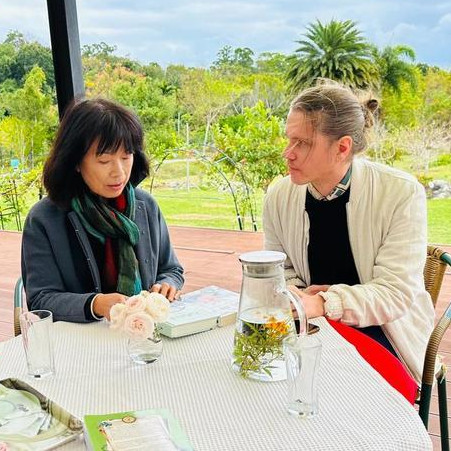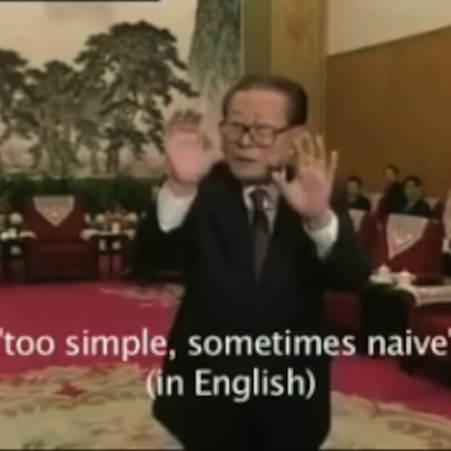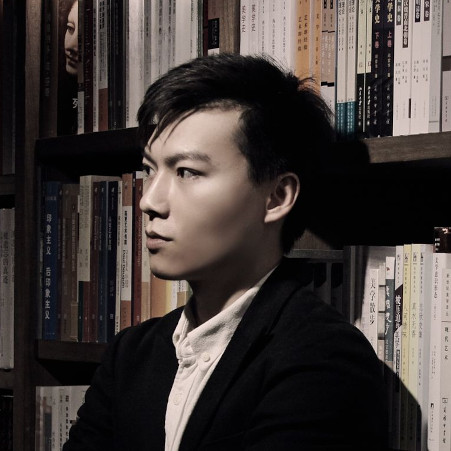China
Image: Sebastian Mayer

Erinnerungslücke: Weshalb Chinas Künstler Corona nicht verarbeiten
Weil die Deutungshoheit beim Staat liegt, wagen es nur wenige chinesische Künstler, sich mit der Corona-Zeit auseinanderzusetzen. Dabei könnte das erlittene Trauma ein Ventil gut gebrauchen.
(Published by China.Table)

New Frontier im hohen Norden: China und Russland in der Arktis
Infolge des Klimawandels wollen Russland und China in der Arktis gemeinsam Bodenschätze und neue Seewege erschließen. Doch die Partnerschaft findet nicht auf Augenhöhe statt und könnte bald sogar in Feindschaft umschlagen.
(Published by China.Table)

Yvonne Adhiambo Owuor: “Western concerns about China are not to our advantage”
In her work, author Yvonne Adhiambo Owuor examines African identities in times of global upheaval and China's growing presence on the continent. She explains to Fabian Peltsch how the younger generation is turning away from the West.
(Published by China.Table)

Can we call Xi a dictator?
Xi Jinping is outraged because Biden and Baerbock publicly call him a dictator. China has different terms and a different understanding of what constitutes an autocrat. And yet the controversy is about more than words - namely, about the sovereignty of interpretation of political narratives and who is allowed to spread them internally and externally.
(Published by China.Table)

Difficult times for LGBTQ people
In recent years, more and more organizations in China that campaign for the rights of the LGBTQ community have had to close. The party propagates classic gender roles. Yet people who move outside of gender norms have never been as visible as they are today.
(Published by China.Table)

“Politicians’ visits to Taiwan are part of a big play”
Lung Ying-tai, bestselling author and former Minister of Culture of Taiwan, is heard by people in her Taiwanese homeland as well as on the mainland. She advocates for more mutual understanding, but vehemently defends democratic rights. In doing so, she makes enemies on both sides. Fabian Peltsch met the controversial author for a conversation in Taiwan.
(Published by China.Table)

Yesterday zero Covid, today zero caution
China's leadership is looking for a narrative for the sudden end of zero-Covid. The propaganda relies on tried and tested methods: radiating optimism, concealing mistakes, finding scapegoats.
(Published at Zeit Online)

“Despite everything, the regime is very self-confident”
The Chinese artist Ai Weiwei considers the decisions of the Chinese leadership to be chaotic and confusing. Nevertheless, he does not see any weakening of the regime. At the same time, he reiterates his criticism of the Germans' belief in authority.
(Published by China.Table)

Long live the toad: Jiang Zemin in China's pop culture
In recent years, Jiang Zemin has achieved cult status, especially among China's young internet users. The toad, as they affectionately call him, represents a self-ironic, cosmopolitan China that was lost under his successors Hu Jintao and Xi Jinping.
(Published by China.Table)

German influencers: cultural mediators on the verge of trivialisation
They have nicknames like "German Sister" or "German Leo": Influencers from Germany are seen as cultural ambassadors in China. Take Melina Weber from Konstanz, for example, who prepares Jiaozi in a Qipao dress. Or Michael Bochmann-Tao, who explains German history in language courses. But they also attract criticism.
(Published by China.Table)

Sanxingdui: “Archaeology with Chinese characteristics”
China is currently experiencing a golden age of archaeology. The focus is on the spectacular discoveries at Sanxingdui, which challenge the image of a unified Chinese identity. Xi Jinping wants the excavation site to be recognized as one of the most important archaeological discoveries of the century. In China, ancient studies are always political.
(Published by China.Table)

Science fiction author Chen Qiufan: “We are more than data”
China wants to be a world leader in technology, but not everyone is enthusiastic about it. The successful science fiction author Chen Qiufan, for example, questions the belief in progress.
(Published in Süddeutsche Zeitung)
